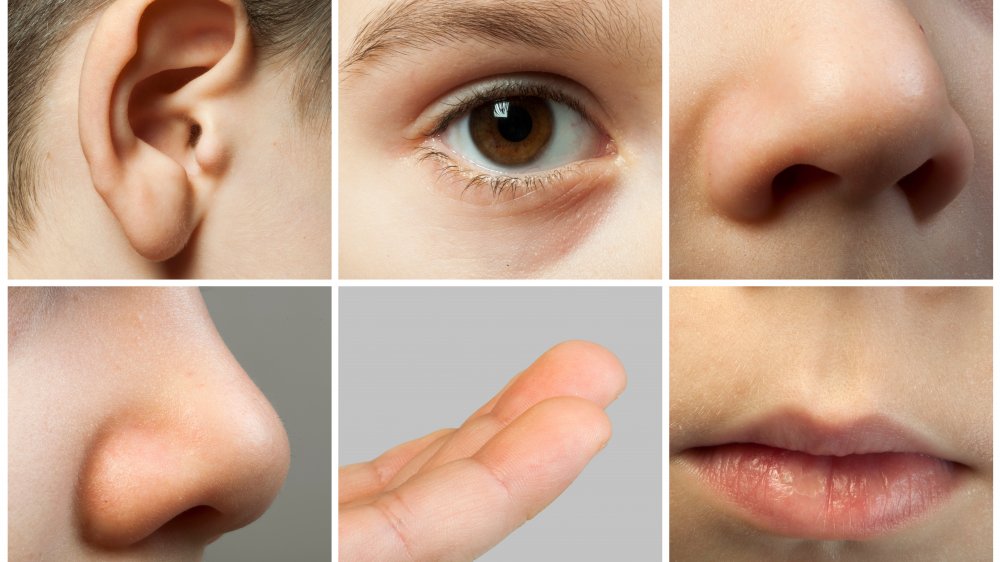Here's Why You Don't Only Have Five Senses
Pop quiz: How many senses does the typical human have? Is it A) three, B) five, C) twenty-one, or D) thirty-three?
If you're tempted to say B), that's understandable. Since grade school, most of us have been taught that we can count our senses on one hand. There's vision from our eyes, hearing from our ears, smell from our nose, taste from our mouth, and touch from our hands and skin. With these five powers combined, we can come to know the world around us. It may sound childish, but it's true, right?
Wrong. As it turns out, B) is the only incorrect answer to the pop quiz, at least according to modern science. Sure, we do have vision, hearing, smell, taste, and touch, but what about balance? What about the ability to feel heat, or to feel pain? Modern psychologists have yet to agree on just how many senses the typical human has, but most argue that it's far more than five — perhaps double, quadruple, or even ten times this traditional number. At the same time, others say that we only have three senses; it all depends on how you interpret sensation. Let's examine how science has reached such wildly different answers.
The idea of five senses may have originated with Aristotle
According to the University of Glasgow, the first recorded argument that humans have exactly five senses was by the ancient Greek philosopher Aristotle. Aristotle's five senses were the same ones you learned about in grade school: sight, hearing, taste, smell, and touch. By the time of William Shakespeare, these five were widely accepted as fact; per the Bill Shakespeare Project, Shakespeare's writing added five "inward" wits (like imagination and memory) to accompany these outward senses. Per Wisdom Lib, though, Buddhist philosophy argues that there are six human senses: the same five that Aristotle wrote about, plus "mind."
But modern psychologists and biologists agree: humans have way more than five senses. Our bodies are capable of so many things that Aristotle, Shakespeare, and the ancient Buddhists weren't aware of. For example, per Sensory Trust, we have nociception: the ability to perceive pain. Now, I can already anticipate your objection; since you've been raised to believe that there's only five senses, you might say "Well isn't pain just another form of touch?" But no; modern scientists agree that sensing pain is a bodily response deserving of a unique category.
Likewise, we have thermoception — the ability to sense heat — and equilibrioception — the perception of balance. There's also proprioception, or the awareness of your body in space; proprioception, per Sensory Trust, is what enables you to perfectly touch your nose even if you have your eyes closed.
By now, it's clear that our list of senses far exceeds the traditional five. But how long is this list exactly? Unfortunately, scientists have been unable to agree on just how many senses we have. Per the University of Glasgow, a number of debates have played out regarding what should and should not be considered a "sense."
Humans probably have between nine and thirty-three senses
Is our ability to sense heat different from our ability to sense cold? Are tasting sweet flavors, tasting sour flavors, and tasting salty flavors all distinct senses? Is the ability to see light different from the ability to see colors? Should thirst, hunger, and the ability to sense when your stomach and/or bladder are full count as senses? Your answer to these questions will impact how many senses you believe that there are. And scientists disagree on the answers, so they disagree on our number of senses.
Right now, Glasgow explains, the conservative answer for the number of human senses is nine: sight, hearing, taste, smell, touch, pain, balance, temperature, and, apparently, blood pressure. But, really, we can say that there are at least nine senses. Many scientists have argued that there are 21, breaking taste, temperature, and others into multiple different senses. Breaking them down even further, others have said that we have 33 senses. Finally, per Sensory Trust, a psychologist named Michael Cohen writes that we have 53 senses!
To sum up, then: Science tells us that we have far more senses than we previously knew, but can't tell us exactly how many we have. If that feels overwhelming, you may be happy to hear that, per Glasgow, some scientists have simplified everything. When you think about it, these researchers say, humans only have three senses: the perception of light, the perception of chemicals, and the perception of mechanical stimuli like pressure. Everything else just falls under one of these three categories.
Is that a satisfying answer? We'll leave that up to you.


